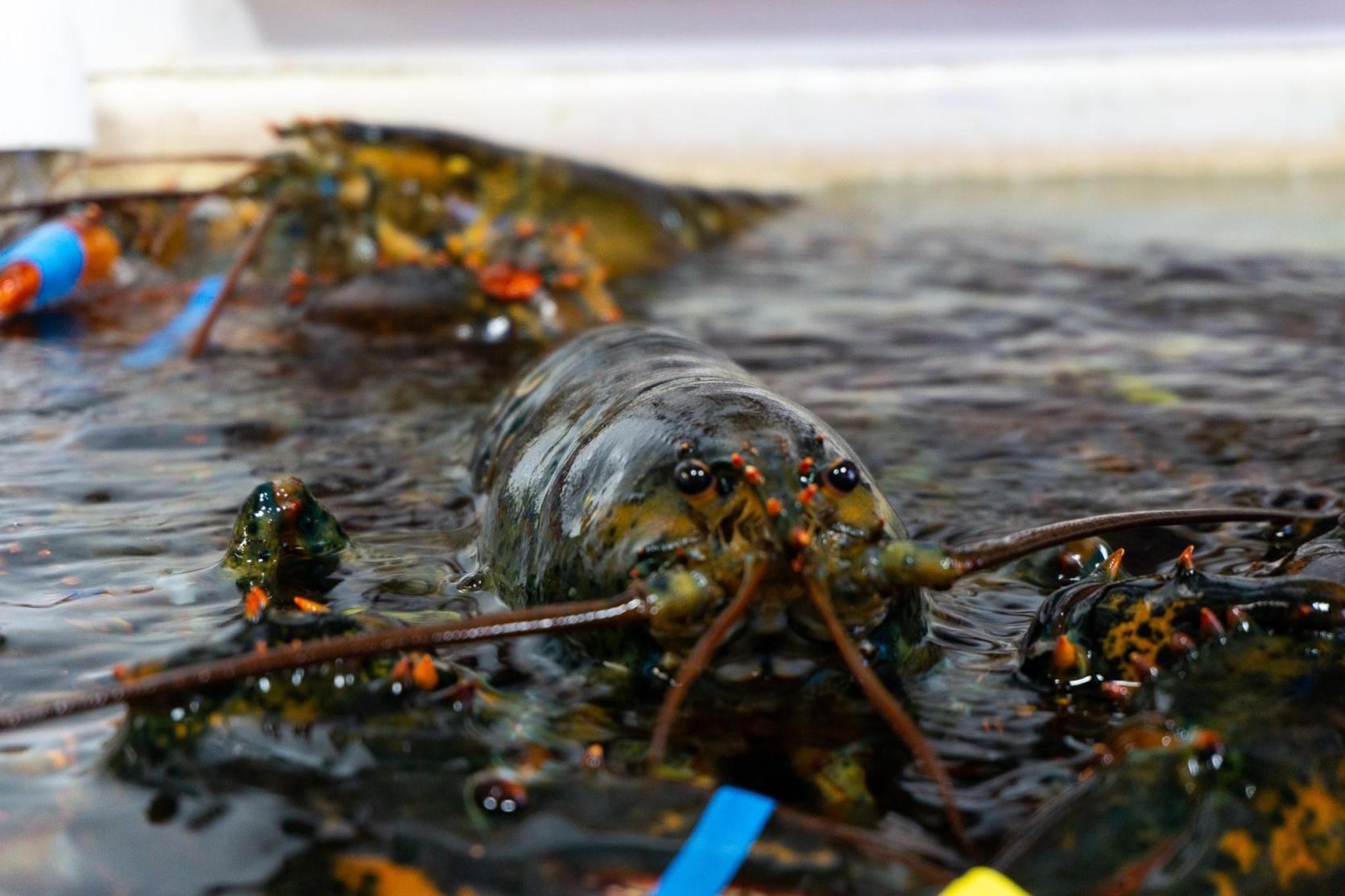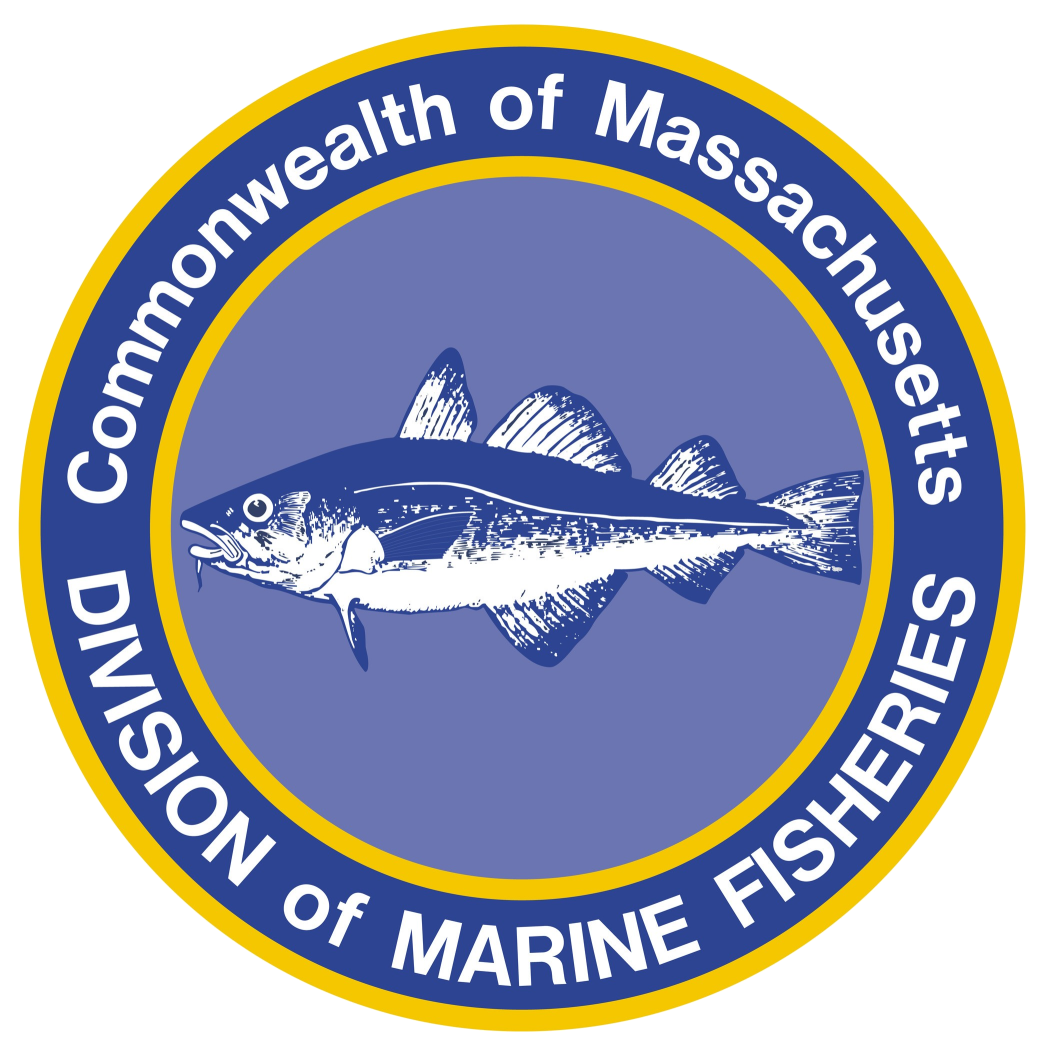- Division of Marine Fisheries

In September, the California-based Monterey Bay Aquarium’s Seafood Watch “red-listed” American lobster caught in the U.S. and Canada. Seafood Watch claims that the lobster fishery poses an entanglement risk to endangered North Atlantic right whales and recommends that consumers avoid purchasing lobster. The red-listing was also extended to all fisheries in the Northeast that deploy vertical buoy ropes that could entangle wildlife such as right whales and leatherback turtles.
This unfortunate decision is counterproductive to ongoing efforts by DMF and the industry to further reduce entanglement risk. Throughout this past November, state and federal officials working with teams of fishermen met to devise plans to further reduce entanglement risk as mandated by recent federal court decisions. Then, in early December, the federal Large Whale Take Reduction Team met for two days to review and combine these into regional strategies affecting all East Coast fixed gear fishermen.
Advising consumers NOT to buy lobsters, crabs, and fish taken with buoyed fixed fishing gears is a colossal mistake. As fishermen are adjusting to new regulations and making personal sacrifices, they need our support. Fishing will become less profitable due to the costs incurred by the need to comply with complex regulations to protect right whales. This is not the time to strip the industry of much-needed revenues for their hard and honest work delivering seafood. This is not the time to turn our backs on these small-scale, owner-operated, family businesses. If consumers heed the call to boycott these fish and shellfish, our local fisheries may not survive. The economic, cultural, and historic value of these fisheries would be lost.
Consumers need to have confidence in the seafood industry and know that hard-working, honest, and innovative fishermen are solving these problems. Seafood Watch’s inclusion of the Massachusetts lobster fishery in the blanket red-listing of the entire U.S. and Canadian lobster fishery ignores data provided by DMF to explain state fishery management and right whale conservation measures. It also ignores substantial conservation steps undertaken by DMF and the state lobster fishery to prevent and mitigate entanglements.
Massachusetts lobster fishing regulations are stricter than any other jurisdiction in the United States. Lobster harvesters are required to remove all fixed gear from the water from February 1 through May 15, when right whales are abundant in Massachusetts waters (with the possibility of an extension of closure depending on whether right whales stay longer). During the open season, when right whales are rarely seen in Massachusetts waters, lobster fishers are required to use “weak rope,” with breakaway links built in, that has a high probability of parting should a whale encounter it. The development of this weak rope was pioneered by the lobster fishery. It is scientifically designed to be in a pragmatic “sweet spot”; strong enough for the traps to be hauled, yet weak enough to break if right whales encounter it. Finally, all buoy lines used in the U.S. lobster fishery are now required to be marked to reveal geographic origin. The marking scheme required for the Massachusetts lobster fishery is more distinctive than any other jurisdiction. Should a future entanglement occur, DMF will be able to determine if it is due to Massachusetts-based lobster gear and will be able to take appropriate actions to prevent future entanglements.
All of these reforms and improvements have been made in consultation and cooperation with the fishing community. All have required adjustments and sacrifices, and all have come with costs. Massachusetts fishermen have proven time and again that they are committed to fishing in ways that will protect right whales, and maintain a fishery and habitat for the next generation. For these historic and heroic fishermen to be demonized by a blanket “red-listing” that does not account for their responsible behavior is unconscionable.
These incremental, successful efforts are very different from proposals now surfacing to create what is called a “ropeless” fishery, trying to eliminate any vertical lines that identify pot and gear locations on the ocean floor. “Ropeless” is far from a panacea. It is expensive, and while technically it can work, it creates myriad practical problems on the water in terms of gear conflict, safety, and enforcement issues; viable “ropeless” technology and best practice is probably at least a decade away. In the meantime, the leadership shown by Massachusetts lobstermen should be adopted everywhere, and that, not driving them out of business, is the best step forward and the best way to protect right whales -- right now.
We at DMF are committed to the recovery of the endangered North Atlantic right whale and appreciate that many conscientious seafood consumers want to support marine conservation goals by choosing sustainable seafood. We also do not want to lose these culturally important legacy industries along our waterfront. We will continue to work to keep fishers fishing and delivering the best and healthiest seafood anywhere. DMF’s Seafood Marketing Program will work to educate the public on our conservation endeavors and continue to encourage the consumption of our healthy, local, sustainable and fresh seafood.
By Dan McKiernan, Director of DMF
